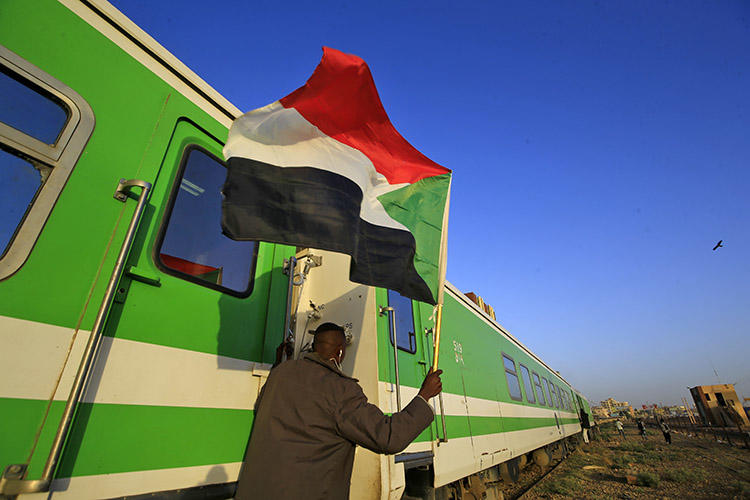New York, January 13, 2020—Sudanese authorities should end their suspension of the newspapers El Ray El Aam and El Sudani and the TV channels Ashorooq and Teiba, and work toward institutionalizing press freedom, the Committee to Protect Journalists said today. Sudanese authorities suspended the four news outlets as part of a wider effort to seize assets from the former ruling party of former President Omar al-Bashir, Qatar-based Al Jazeera and the independent Sudanese news outlet Radio Dabanga reported.
The Sudanese Anti-Corruption Committee announced during a January 7 press conference that the outlets would be suspended, Radio Dabanga reported. Al Jazeera quoted El Sudani reporter Mashair Ahmed as saying that men in military uniforms came to the office and told staff that they had 30 minutes to take their personal belongings and leave. The report did not specify the date that took place.
On January 12, Deputy Minister of Information Rasheed Saeed was cited in the reports as saying that the transitional government was suspending the outlets under a law authorizing authorities to seize the assets and funds of the former regime, and not because of their editorial line.
Ashorooq did not immediately respond to CPJ’s email requesting comment. CPJ was not able to locate contact information for the other outlets. A representative for the local press freedom group, Sudanese Journalists’ Network, did not respond to CPJ’s request for comment.
“There is an irony to Sudan’s transitional government attempting to turn the page on a previous repressive regime by imitating its tactics,” said CPJ Senior Middle East and North Africa Researcher Justin Shilad. “Sudanese authorities should end the suspension of these newspapers and TV stations and ensure that press freedom does not become collateral damage during a sensitive moment.”
Radio Dabanga reported that the suspension would last until the committee’s investigation is complete. A CPJ review found the website for El Ray El Aam is offline and the websites for Ashorooq and El Sudani have not been updated since last week. The broadcasters Ashorooq and Teiba are uploading content to their YouTube pages.
Shamael Elnoor, a Sudanese journalist who formerly worked at Ashorooq, told CPJ that she believes the decision was part of the effort to target the old regime’s assets and was not connected to press freedom.
The Sudanese Ministry of Information and Culture did not immediately reply to an email from CPJ.
Last month, the transitional government announced that it was shutting the Sudanese Journalists Union under the same law, according to Al Jazeera. The move drew the condemnation of the International Federation of Journalists, which is the syndicate’s umbrella organization.
Radio Dabanga reported on January 8 that the government was waiting for information on accounts and properties associated with the Sudanese Journalists Union.
Sudan formed a new cabinet in September that included journalist Faisal Saleh as Minister of Culture and Information as part of a power-sharing agreement between civilian and military authorities after mass protests led to Bashir’s ouster, The Associated Press reported. Saleh, who was detained by Sudanese authorities prior to holding his post, reiterated his government’s commitment to press freedom in a November 2019 statement.
